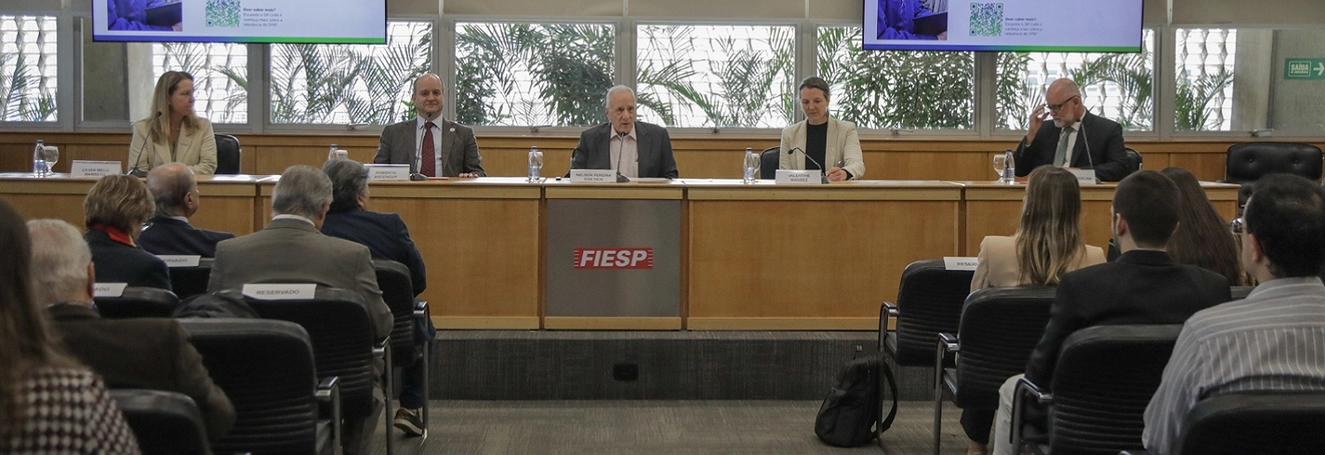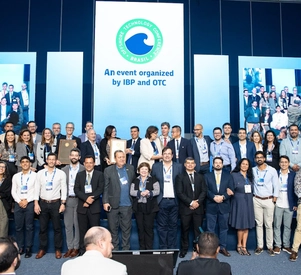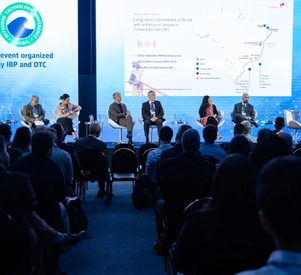IBP and FIESP Discuss Industry Decarbonization Ahead of COP30

The Brazilian Petroleum and Gas Institute (IBP) and the Federation of Industries of the State of São Paulo (FIESP) held, on Thursday (Aug 28), the third event in the pre-COP30 series. An IBP initiative with the theme “Innovation and Technological Solutions for Decarbonization and Energy Transition”, the meeting brought together experts, executives from major companies, and authorities to discuss concrete pathways for reducing emissions in industry and transportation.
The seminar highlighted the central role of technology and cross-sector collaboration in addressing the challenges of climate change, turning them into opportunities for the national economy. Roberto Ardenghy, President of IBP, opened the event by stressing the strategic importance of the oil and gas sector for Brazil’s economy and sustainable development. “We have made significant progress in decarbonization, producing pre-salt oil with one of the lowest carbon footprints in the world.”
Strategies for ‘Hard-to-Abate’ Sectors
Representing FIESP, Director Nelson Pereira stated that decarbonization is inseparable from the industry’s performance. With COP30 developments in mind, the organization commissioned studies on emissions from hard-to-abate sectors. “Access to low-carbon technologies and suitable financial instruments is essential to enable energy efficiency and decarbonization projects, which are crucial for the country to reduce carbon emissions competitively and sustainably.”
Valentine Mangez, Consul General of Belgium, emphasized the need for international collaboration and joint investments to accelerate the energy transition, expressing strong optimism about the potential of Brazilian companies to contribute to global climate goals. “It is vital to work together to find the best pathways, combining technical expertise and financial resources to drive innovation and ensure industrial decarbonization occurs fairly and efficiently, benefiting everyone.”
Carlos Padilla, Director of APEXBrasil, presented the agency’s innovative program to attract cutting-edge foreign technologies to Brazil, involving 40 companies with decarbonization solutions. “The project aims to facilitate the establishment of operations and partnerships in the country and will be expanded to include energy efficiency, digitalization, and automation, strengthening the competitiveness of the national industry.”
Lilian Barreto, Executive Manager at Petrobras’ Research, Development and Innovation Center (Cenpes), stated that the energy transition will not happen without the leadership of the energy industry. “We have the experience, technology, and capital to deliver highly complex projects, along with a portfolio dedicated exclusively to low-carbon initiatives, focusing on several technological fronts, including carbon capture and utilization (CCUS), operational efficiency, and new sustainable molecules.”
New Global Maritime Transport Regulation Creates Opportunities
Navy Commander Flavio Mathuy addressed the decarbonization of maritime transport, which accounts for 90% of Brazil’s trade, noting that the International Maritime Organization (IMO) has set binding regulations that will take effect in 2027, with CO₂ emission limits. “This new global regulation presents challenges but also opens a range of opportunities for Brazil to position itself as a supplier of low-carbon solutions and fuels for global shipping, turning the country’s potential into a competitive advantage.”
Rafael Leme, Sustainability Manager at the Energy Research Company (EPE), stressed the importance of energy planning and highlighted the need for detailed, segmented analysis. “Incorporating emerging technologies and ensuring collaborative participation from all stakeholders, public and private, is essential to build robust planning and effective public policies to support decarbonization.”
Raildo Viana do Nascimento, Executive Manager of Safety, Environment and Health at Transpetro, pointed out that maritime transport, despite being the mode with the lowest relative emissions, faces ambitious decarbonization targets. “Transpetro has invested in various technologies, such as hydrodynamic appendages and optimization software, which have already delivered 4 to 6% gains in fuel efficiency.” For Douglas Rosa, Engineering Manager at Constellation, energy efficiency and decarbonization “are a matter of survival for the drilling services industry.”
Petrobras Tackles Methane Emissions
Roberto Gennaro, Decarbonization Manager at Petrobras, focused on the importance of reducing methane emissions, a gas with nearly 25 times the warming potential of CO₂. “Petrobras has already cut its methane emissions by 68% since 2015. It is worth noting that the regulatory landscape is evolving rapidly, and Brazil is expected to soon adopt specific methane regulations, making emissions management even more critical.”
Luciana Campello Soares, Sustainability Specialist at ICONIC, shared the company’s success story in reaching its 2030 decarbonization target six years ahead of schedule. “The main initiative was replacing natural gas with biomethane at one of our major plants, in partnership with Ultragaz. This action accounted for 93% of the company’s absolute emissions reduction between 2023 and 2024.”
Ultragaz Manager Gabriel Bosso explained how the company is positioning itself as a multi-solution energy platform to support clients in decarbonization. “Biomethane is emerging as a strategic solution that is quickly gaining relevance in Brazil, offering a low-carbon alternative for industry. Ultragaz has been investing to tailor supply to clients’ needs, ensuring the reliability required for the transition.”
Companies Showcase New Carbon Solutions
Janaína Ruas, Director at SLB, presented the company’s new energy portfolio, which includes carbon solutions such as Carbon Capture, Utilization and Storage (CCUS), geothermal, sustainable lithium extraction, and energy storage. “We are applying our technological expertise to develop concrete decarbonization projects across various fronts, both in Brazil and globally.”
Felipe Nascimento, Manager at Petronas, said that Carbon Capture and Storage (CCS) technology is at the core of the company’s global strategy to decarbonize the sector and noted the significant potential for CCS projects in Brazil.
Paulo Marinho Neto, R&D Manager in CCS at Petrobras, detailed the company’s advanced research to enable large-scale carbon capture, utilization, and storage. “Our focus is on overcoming technological and cost challenges to implement CCUS as a strategic tool in Brazil’s decarbonization agenda, leveraging the company’s vast experience in complex operations to lead this new technological frontier.”




